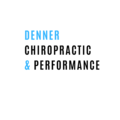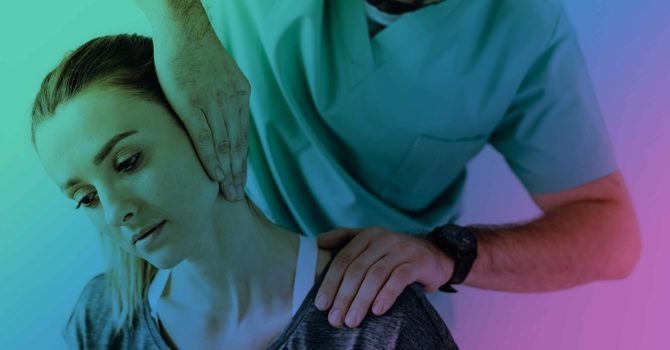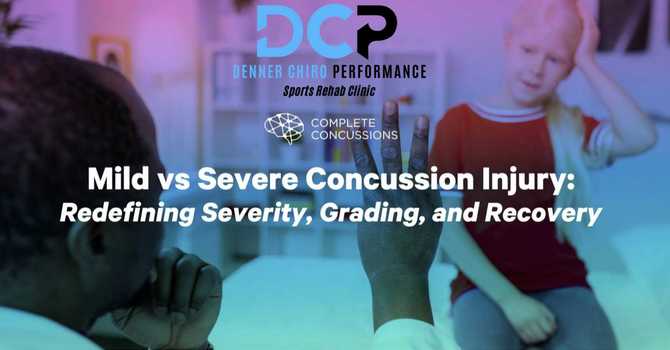
Quick Evidence-Backed Guide To Concussion Testing
As concussions become more widely discussed and studied in the sports world, treatment methods must keep up with the latest evidence-based practices. Most of the advice healthcare professionals have been giving patients for decades, may not be very helpful. Not only are many of the treatments offered outdated, guidance like "sit in a dark room", "avoid exercise" and "rest until your symptoms are gone" can be detrimental to recovery
Most healthcare providers use a symptom-based approach. Relying on the athlete’s symptoms is a poor indicator of brain recovery. Once an athlete shows they are symptom free it doesn’t mean that they have fully recovered from their concussion. After a trauma, there are functional disturbances to the brain such as a change in neuronal cell function, blood flow dysregulation, and more. [1,2] During the recovery phase the brain is very vulnerable to another impact that can lead to further injury. The best thing an athlete can do after a concussion is to avoid high-risk sports events until they have fully recovered not from a symptom standpoint but from a brain function standpoint. [3,4,5] Baseline testing is the first step in understanding an athlete’s unique brain functional standpoint. Baseline testing can better help healthcare professionals diagnose and safely return an athlete to their sport.
Dr. Denner, who played for Charlotte Soccer Academy (CSA) and endured several concussions during his youth soccer career, has a passion for diagnosing and recovering from concussion-related injuries.
"What's the point of baseline testing?"
Baseline testing is used to gain insight into an athlete's cognitive and physical brain function as a reflection of their healthy normal. This information serves as an ideal reference point for understanding when a concussion has occurred. Instead of playing a guessing game that can lead to misdiagnosis and longer time out of play we can safely and effectively diagnose and return an athlete to the sport. Studies have shown that athletes evaluated a week within an injury recovered a mean of 20 days faster than those seen 2 to 3 weeks post-injury!
“Who can get a baseline test?”
We recommend baseline testing for athletes who compete in contact sports and are over the age of 10.
“How do I sign up for a baseline test?”
You can follow the link to schedule a baseline test today! Just select the Baseline concussion test and a time that works for your schedule.
https://dennerchiropracticandperformance.janeapp.com
“Where and when can I get this done?”
Baseline testing will start on January 15th and will be held on the weekends at your selected time. You can get your baseline test done at Denner Chiropractic and Performance which is conveniently located next to Ortho Carolina Sportsplex.
The address is 13501 Dorman Rd Pineville, NC 28134
Credit/Citations/Additional Resources
Complete Concussion Management
Dr. Cameron Marshall
https://completeconcussions.com
https://www.youtube.com/watch?v=oJT0XnJ5w9M
1. Giza CC, Hovda DA. The new neurometabolic cascade of concussion. Neurosurgery. 2014;75 Suppl 4(0 4):S24-S33. doi:10.1227/
2. Len TK, Neary JP. Cerebrovascular pathophysiology following mild traumatic brain injury. Clin Physiol Funct Imaging. 2011;31(2):85-93. doi:10.1111/j.1475-097X.2010.00990.x
3. Signoretti S, Vagnozzi R, Tavazzi B, Lazzarino G. Biochemical and neurochemical sequelae following mild traumatic brain injury: summary of experimental data and clinical implications. Neurosurg Focus. 2010;29(5):E1. doi:10.3171/2010.9.FOCUS10183
4. Stephens JA, Liu P, Lu H, Suskauer SJ. Cerebral Blood Flow after Mild Traumatic Brain Injury: Associations between Symptoms and Post-Injury Perfusion. J Neurotrauma. 2018;35(2):241-248. doi:10.1089/neu.2017.5237
5. Vagnozzi R, Signoretti S, Cristofori L, et al. Assessment of metabolic brain damage and recovery following mild traumatic brain injury: a multicentre, proton magnetic resonance spectroscopic study in concussed patients [published correction appears in Brain. 2013 Nov;136(Pt 11):i1. Marziale, Simone [corrected to Marziali, Simone]]. Brain. 2010;133(11):3232-3242. doi:10.1093/brain/awq200

Denner Chiro Performance
Contact Me



